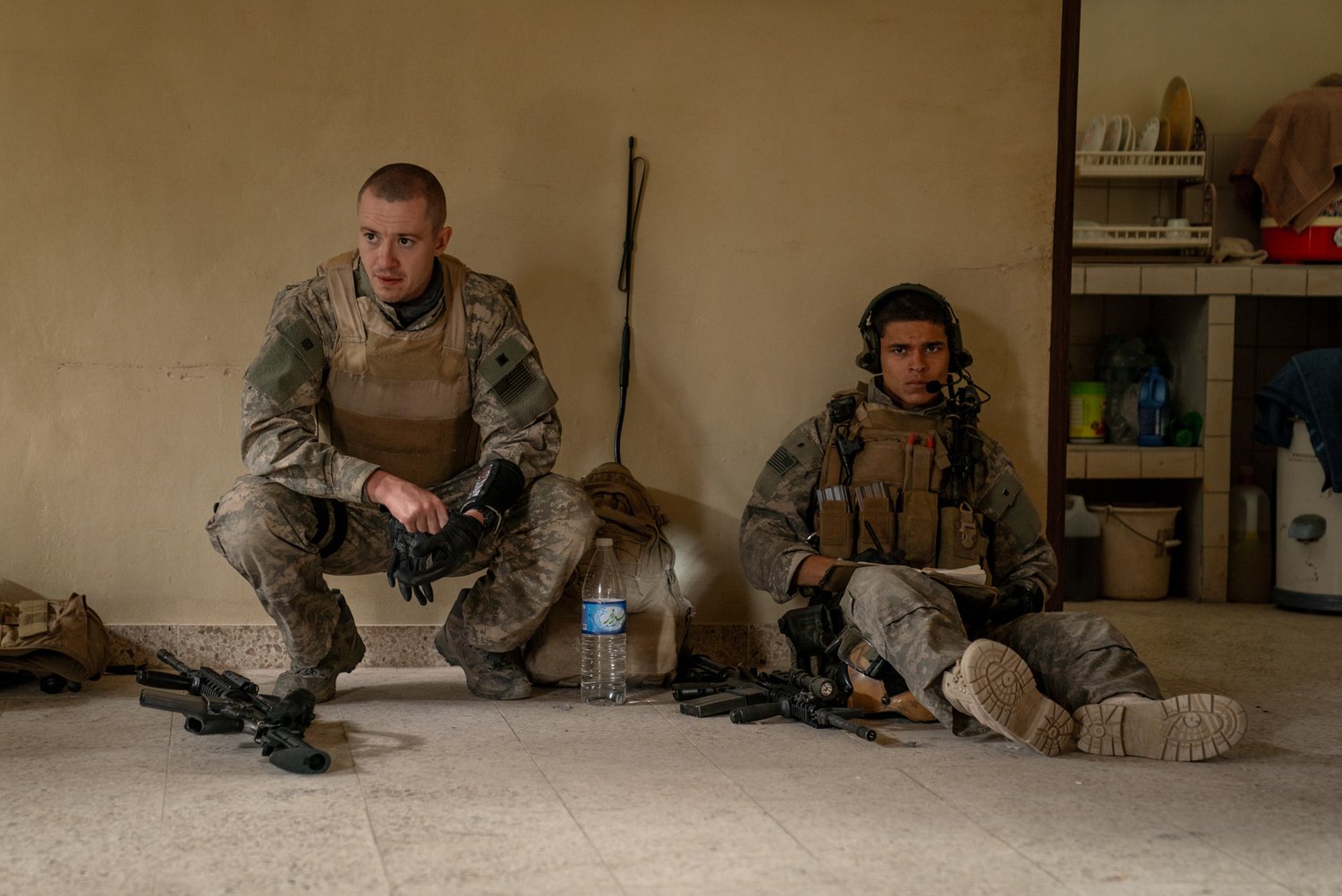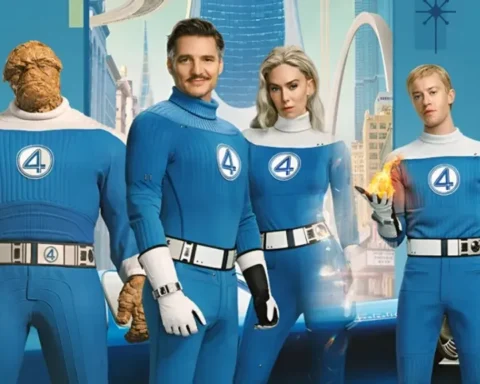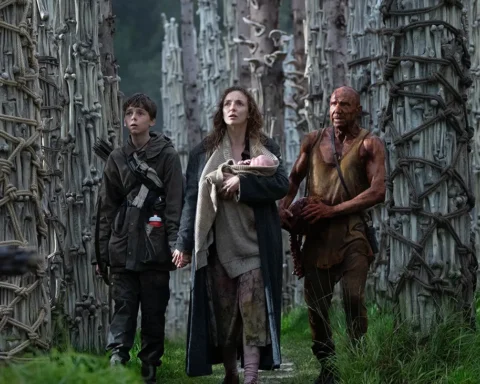Following up ‘Civil War’ exactly one year later, this time pairing up with co-director and Iraq War veteran Ray Mendoza, acclaimed filmmaker Alex Garland is back with another harrowing, brutal depiction of war. This time around, we are following a platoon of American Navy SEALs on a surveillance mission gone wrong in insurgent territory during the Iraq War in 2006. Warfare is a visceral, boots on the ground story of modern warfare and brotherhood, told like never before: in real time and based on the memory of the people who lived it. Featuring a talented cast including Will Poulter (Midsommar) and Joseph Quinn (Gladiator II) and impeccable sound design, Warfare is a stark and intense ride that will leave you cold by the time the credits roll. It’s equal parts impressive and intense.
Warfare is the type of war movie that doesn’t shy away from depicting the true horrors of the event. It’s not a glorified epic with upbeat music, flags flying and kills counted; it’s a stark, gut-wrenching and fear-inducing horror show that depicts every threat the squad faces. Reminding us that these are just a group of young lads in those first frames, dancing around a computer to ‘Call on Me’ to get themselves hyped for the mission ahead, we are thrown head first into a harsh reality – no matter how well-trained and how headstrong the team is, they have no idea what’s coming. From violent and bloody injury details to startling bombs and gunshots, the film rarely lets the audience or its characters breathe, showcasing the reality of war. Death, injury and the inability to plan for what’s ahead. Although this makes for a hard watch at times, it’s important to remind audiences that these events should not be glorified. Whilst Garland’s ‘Civil War’ last year faced criticism for sitting on the fence, the message of Warfare is obvious – war is abhorrent and causes harm to all involved, not just the fighting sides but the civilians who lose their homes and lives because of it.
From a filmmaking standpoint, Warfare is phenomenal. Perhaps its best asset is the sound design, which knows exactly when to use startling bangs and complete eerie silence to enhance each scene. From our soldier’s ear-piercing screams over their injuries to the whooshing of the airplanes above, the sound mixing is superb throughout and deserves to be witnessed in the best format possible. The visuals, whilst of course harrowing and confronting, are equally impressive. Largely set in one location, the whole space is used perfectly to keep things engaging and still feel like the audience are being taken on a journey. It’s rare to receive a war movie centered on just one location, and the film-making team truly makes it work. It was also an admirable decision to provide the speedy 95-minute run-time in real-time, fully committing to throwing us into the surveillance mission alongside the SEALs. This heightens the intensity tenfold, as the panic and terror of the situation can be felt. It feels like a rush that you can’t escape from, the filmmaking enhancing the material.

Where Civil War was quite a deep character study, Warfare is almost the opposite. As we are thrust into the situation alongside our squad, we don’t really know much about them, their backgrounds or their personal lives. Whilst that sounds like a disservice on paper, in the context of the movie, it works. The nature of this story is simply to showcase the horrors of war, and the reality of this is you don’t know who you’re fighting. You are forced to forget that they have family waiting for them and lives of their own, in aid of the mission. Garland and Mendoza aren’t interested in telling us backstories here, they are interested in showing us what these soldiers go through. Even so, the reactions of our actors are fantastic enough to let us in on their personalities, and despite the minimal information we have on them, we feel we get to know them regardless. This is largely down to the incredible performances, with every member of the ensemble delivering a notable turn. There isn’t an obvious lead here, as every squad member is of equal importance, so the screen-time is largely shared. However, Joseph Quinn manages to be an easy standout, making the ordeal his character goes through frighteningly real.
Warfare is often a tough watch, as it isn’t afraid to get to the brutal bottom line in its depiction of everything that makes war so terrifying – the injuries, sounds, sights and locations. It’s harrowing from start to finish, likely leaving most audience members uncomfortable by the time the credits roll. However, this doesn’t mean that Warfare isn’t a fantastic piece of filmmaking that deserves to be seen on the biggest screen possible. The excellent performances, applaud-worthy sound design and real-time storytelling ensure Warfare is equally as commendable as it is distressing. Without question, it’s one of the year’s best movies to date.






